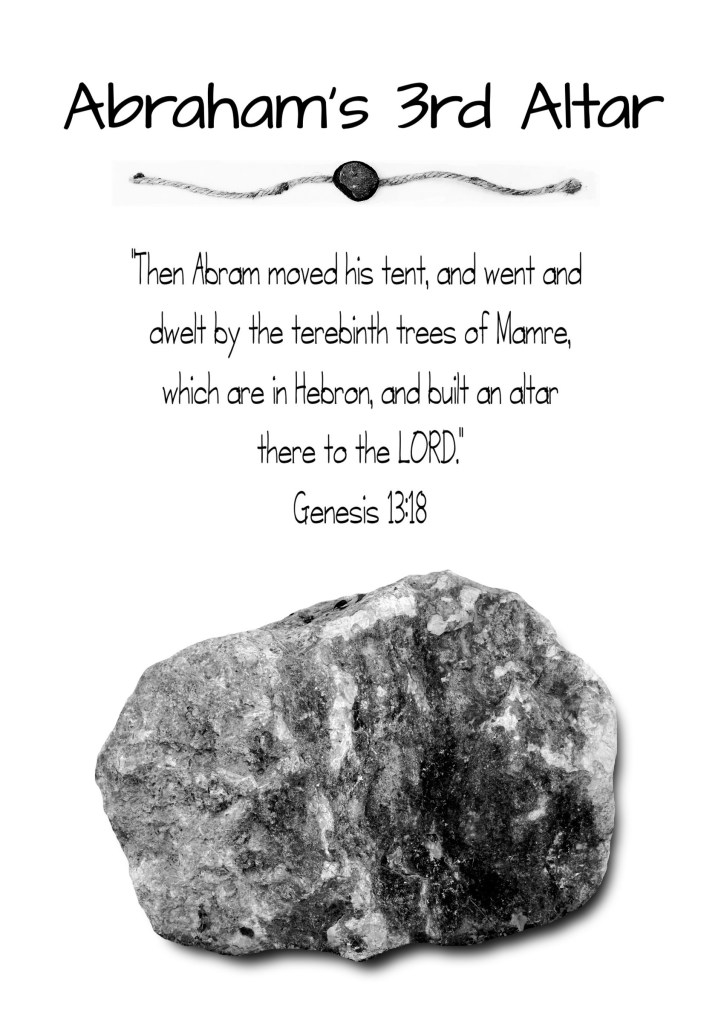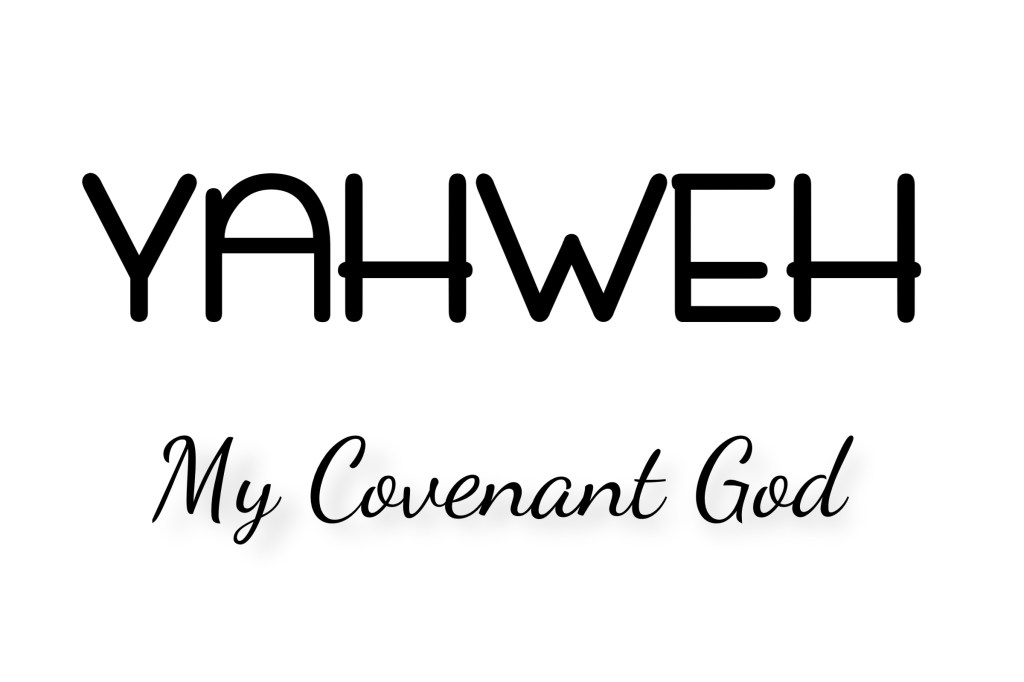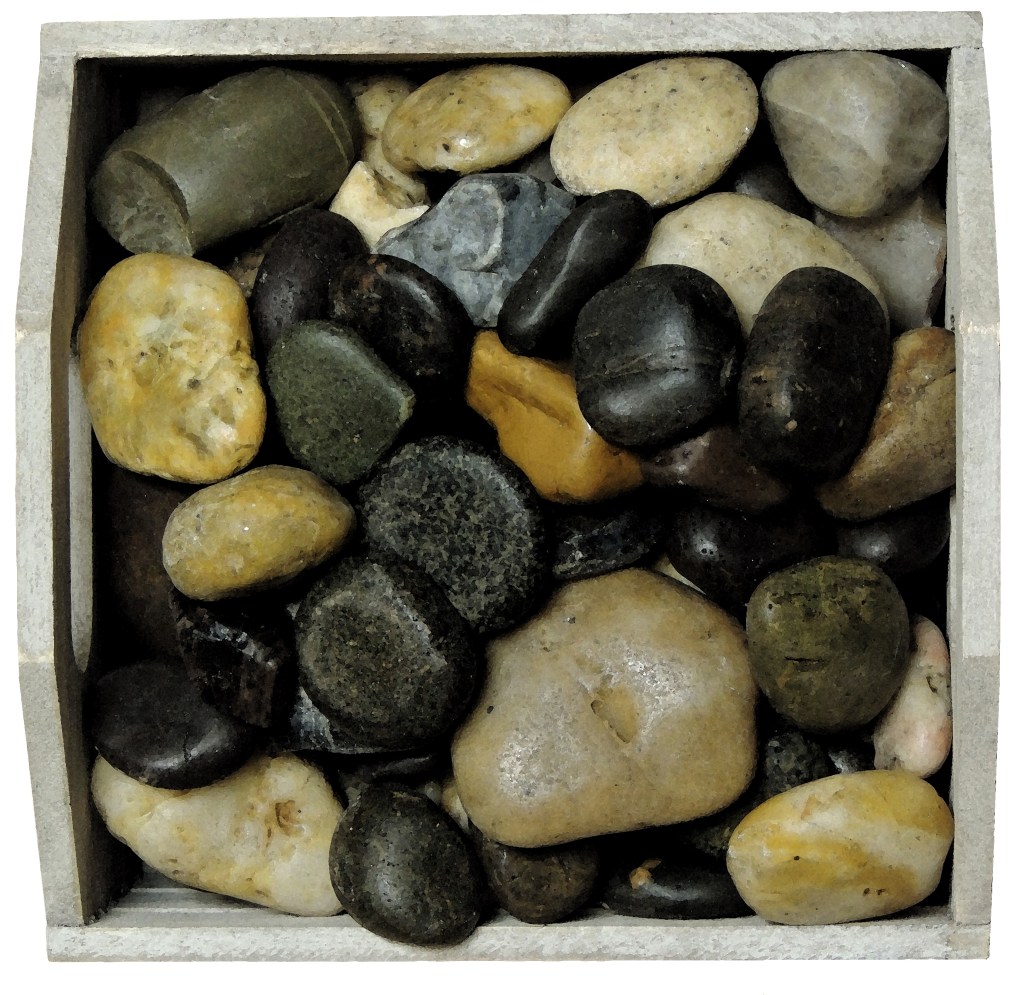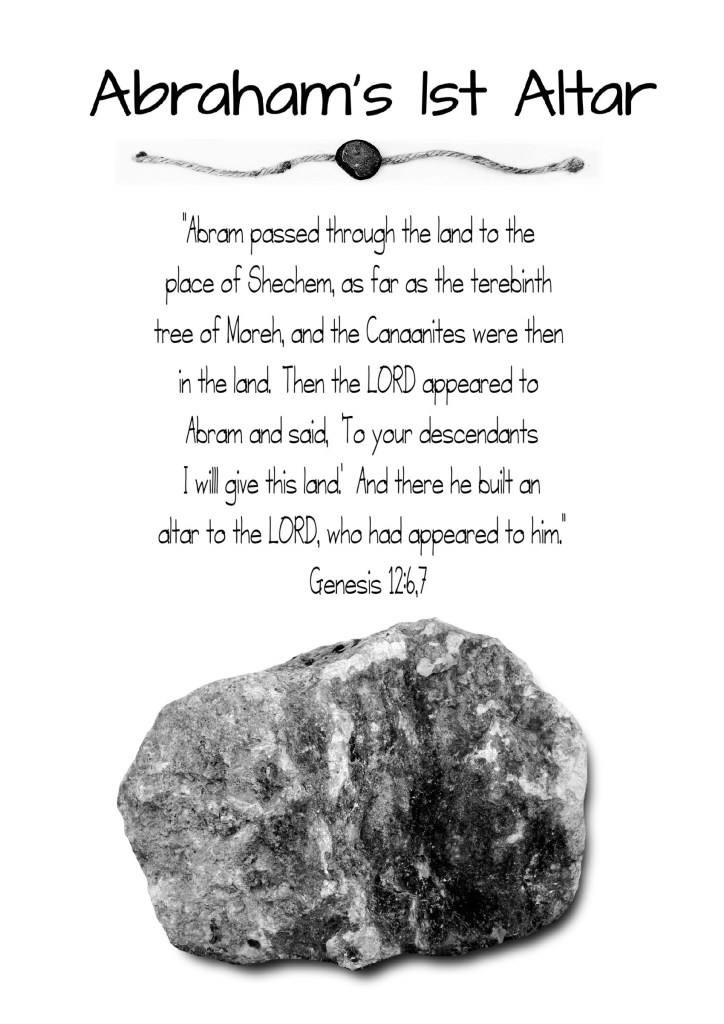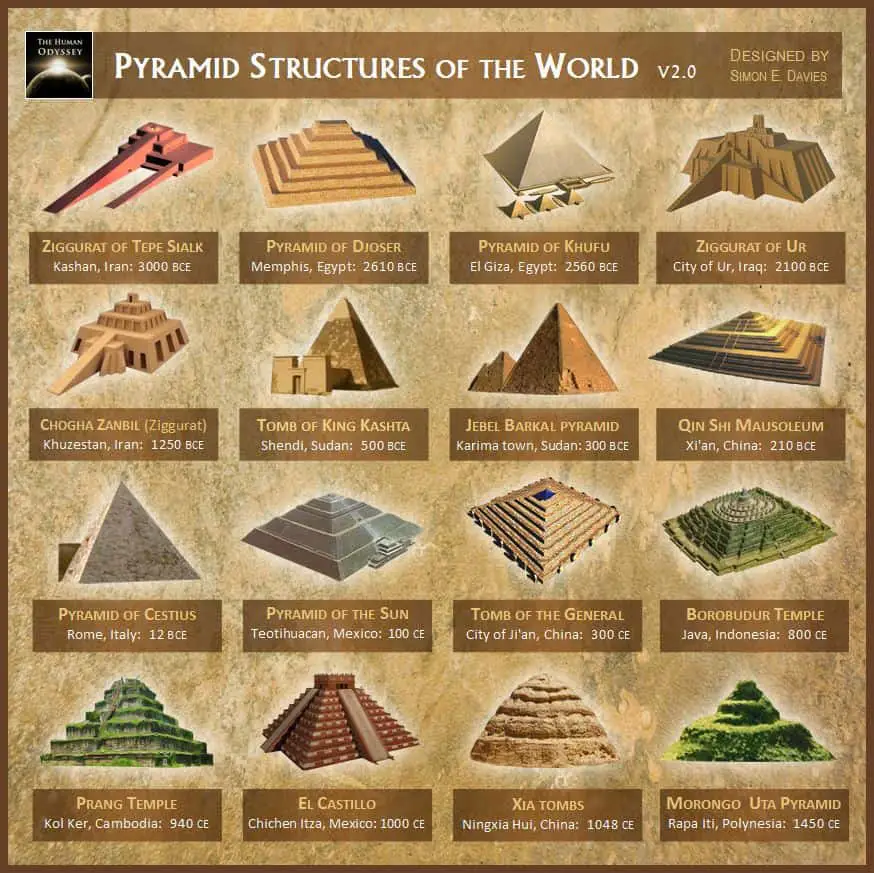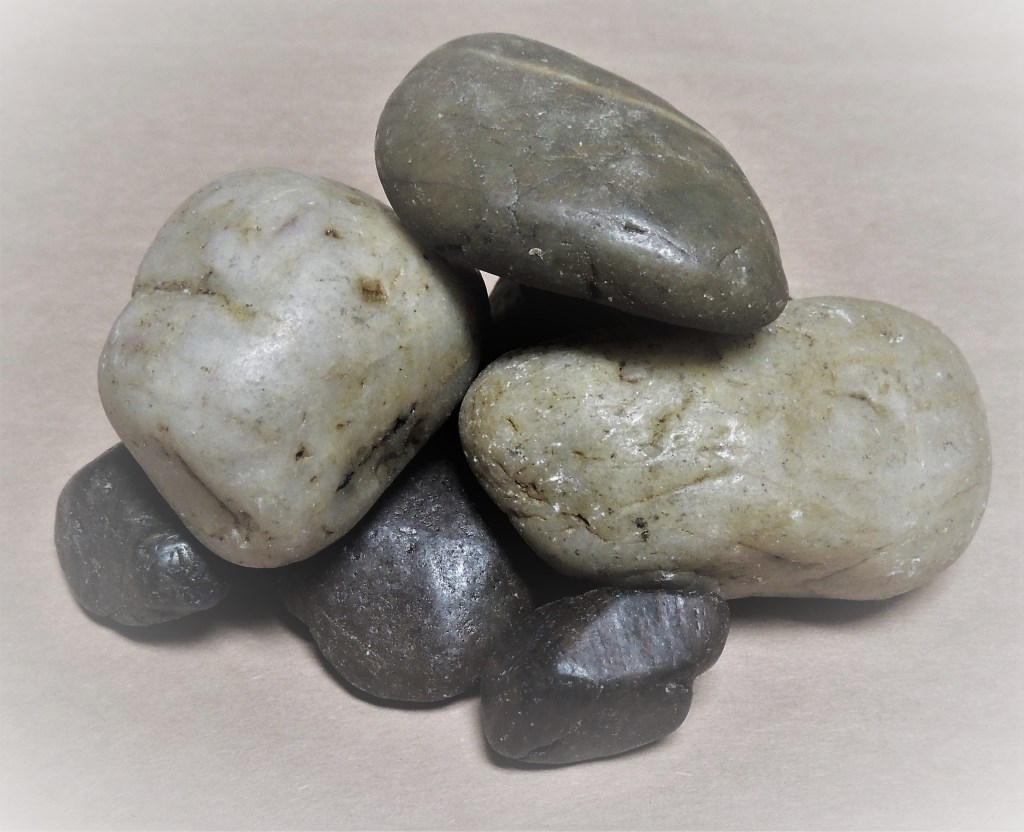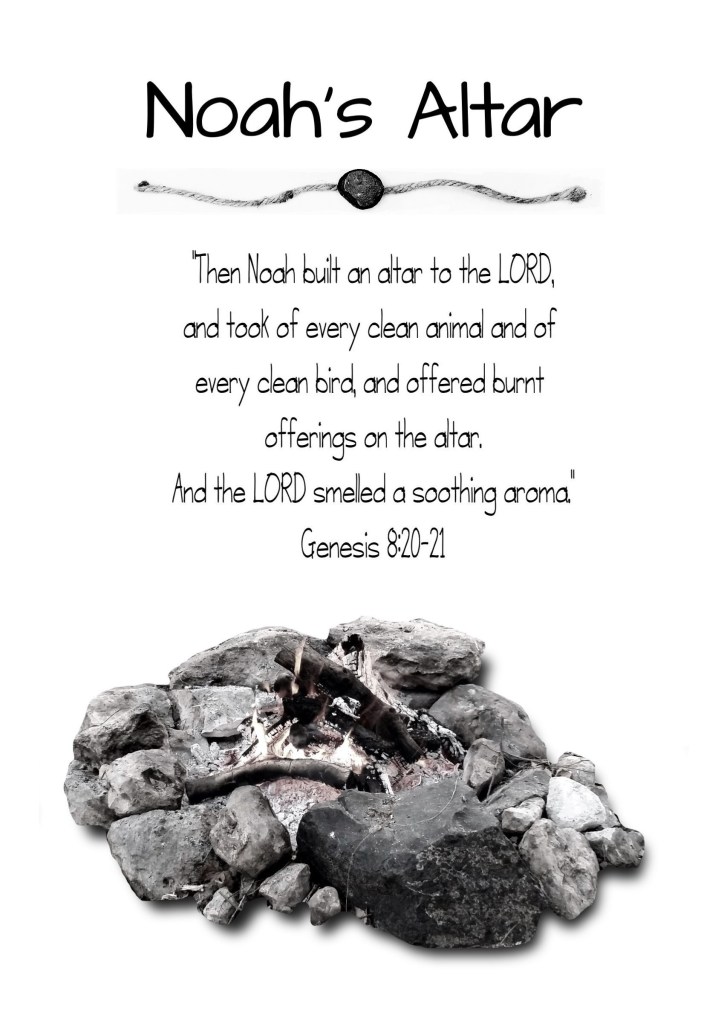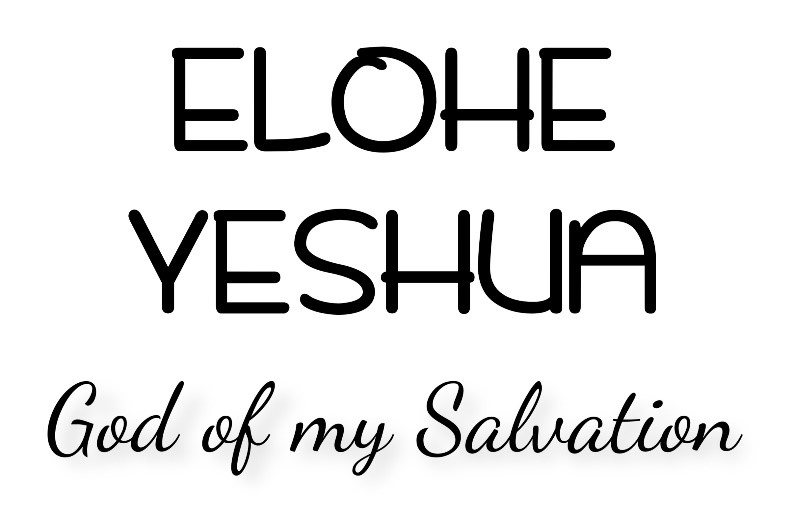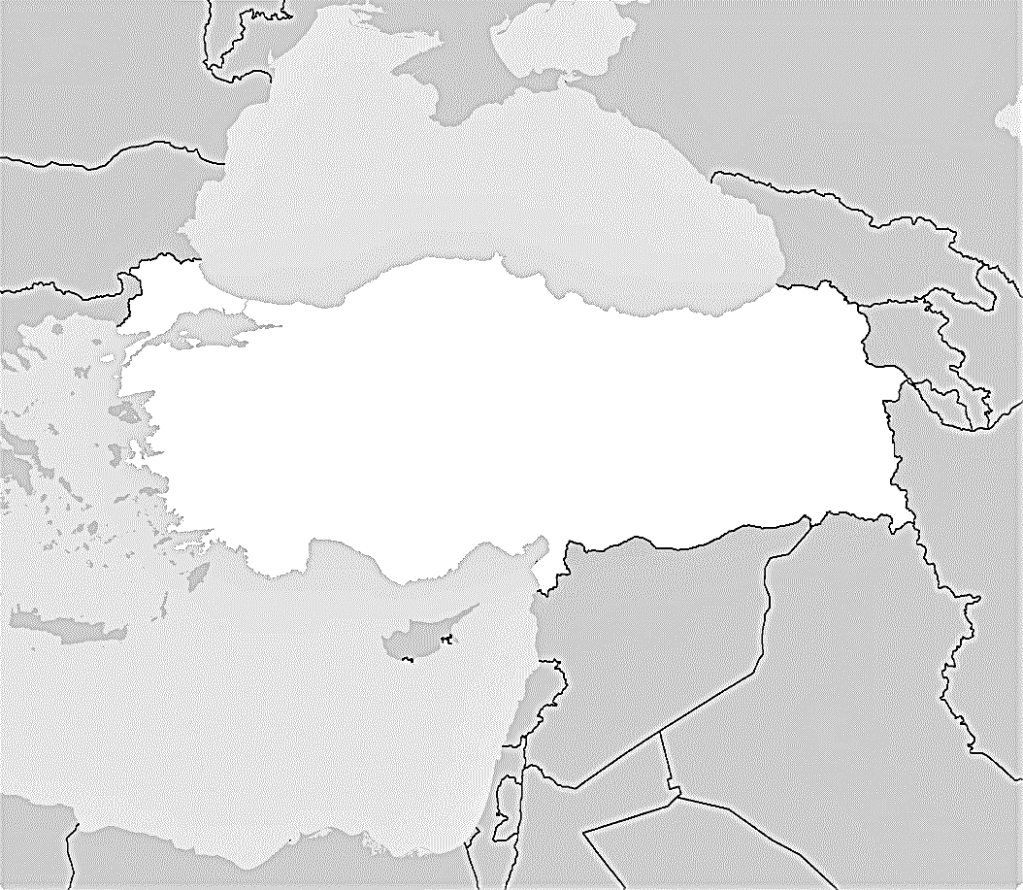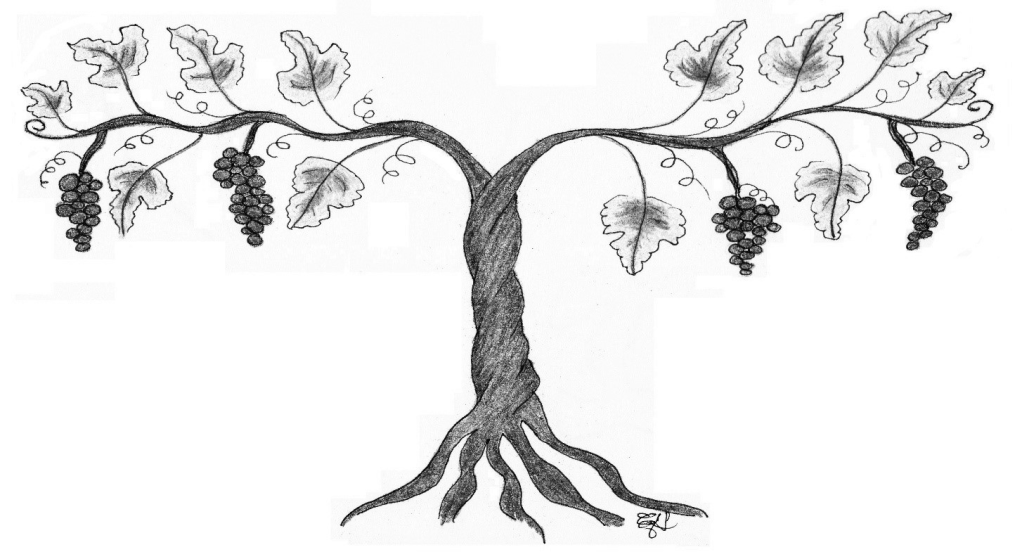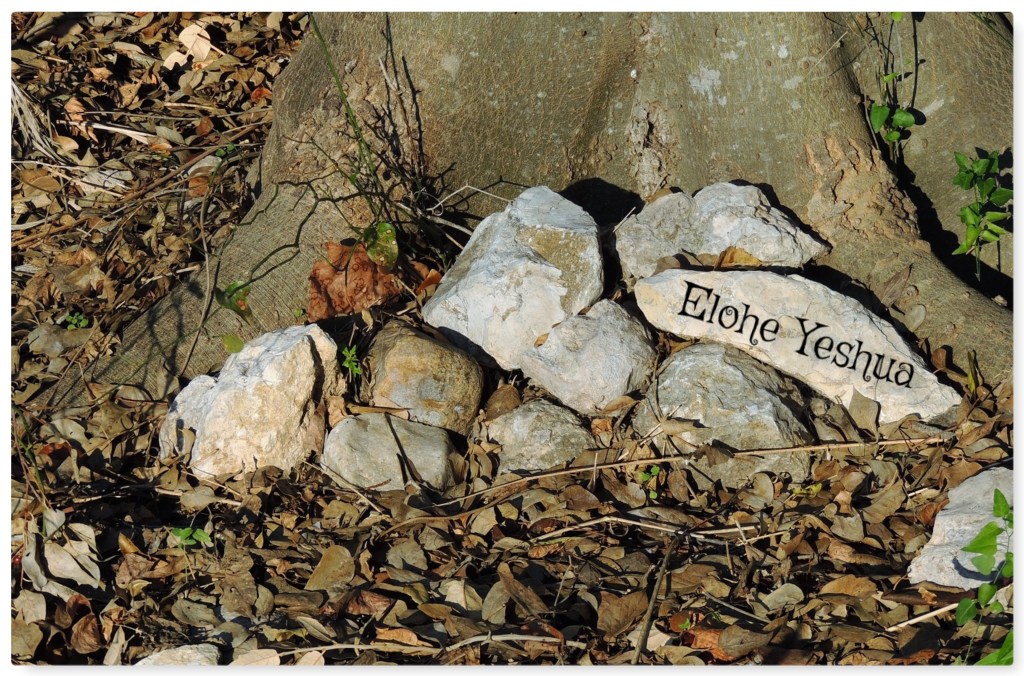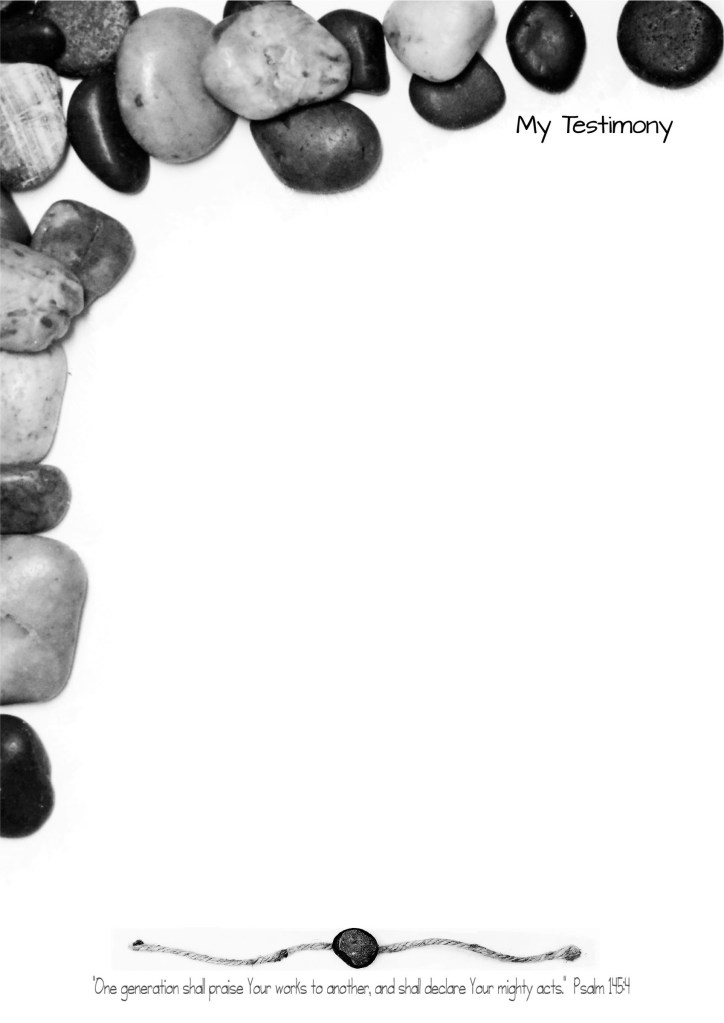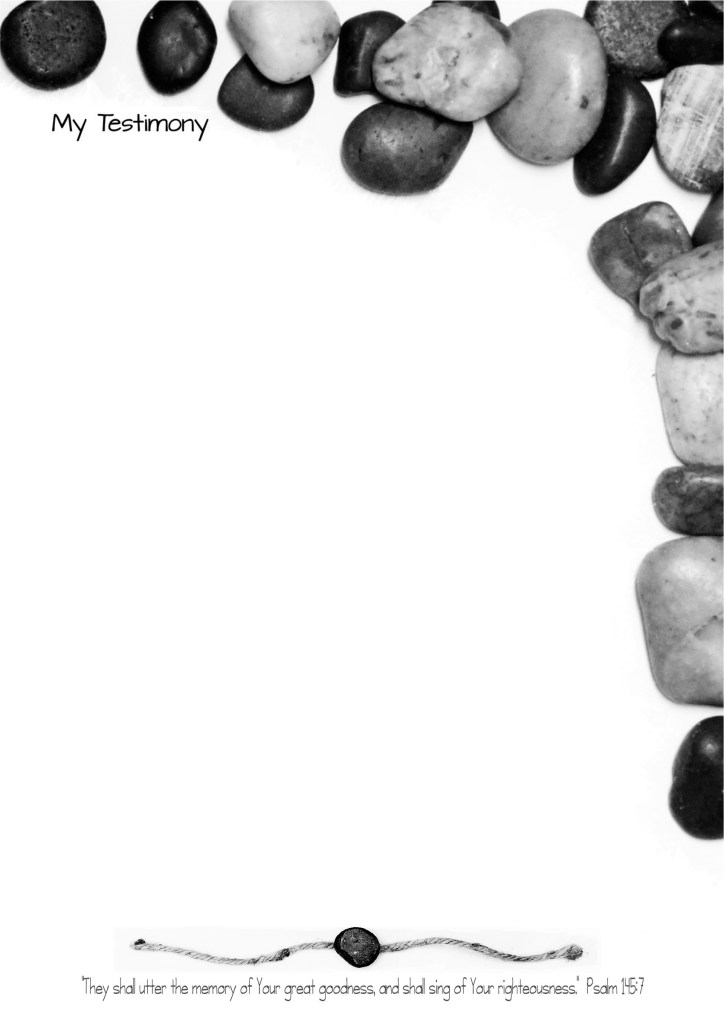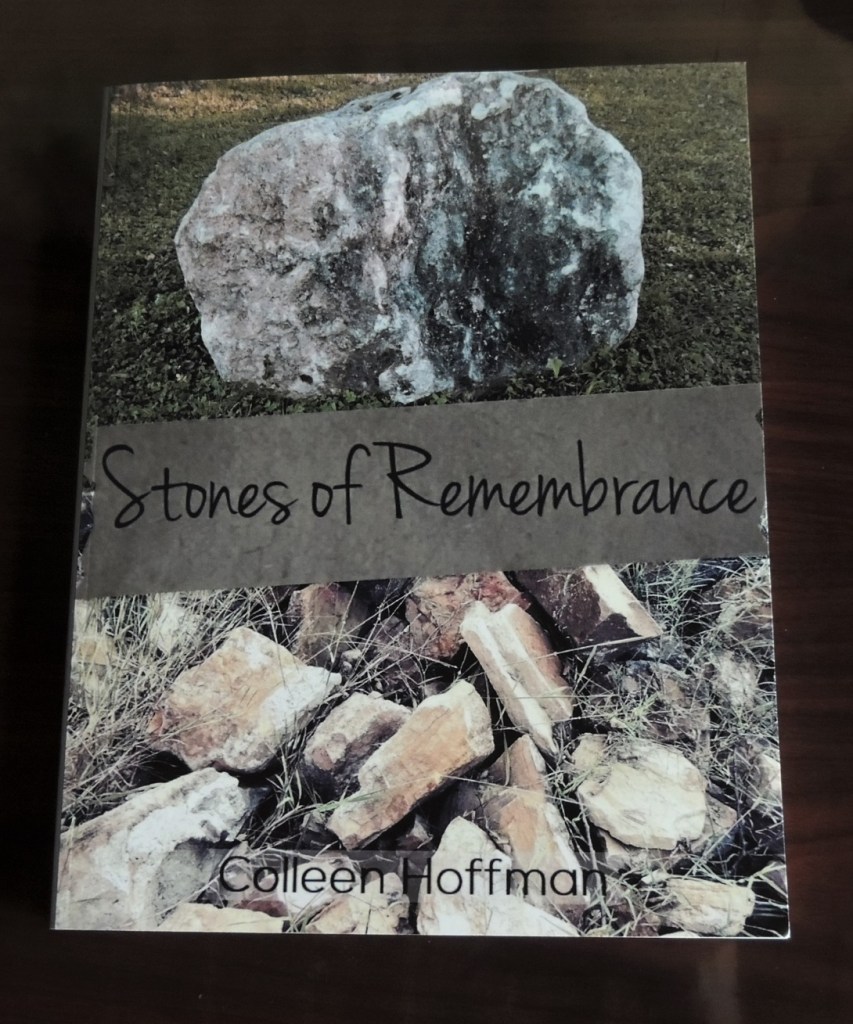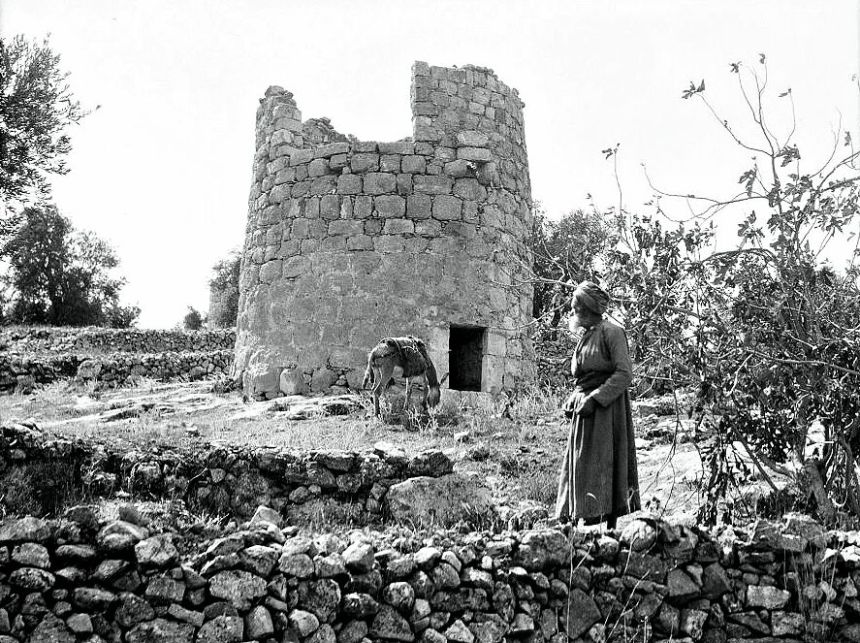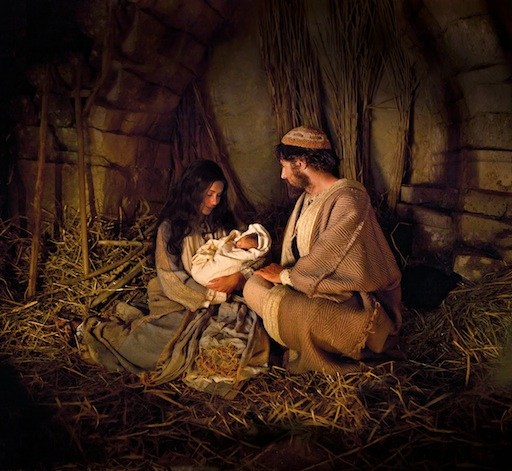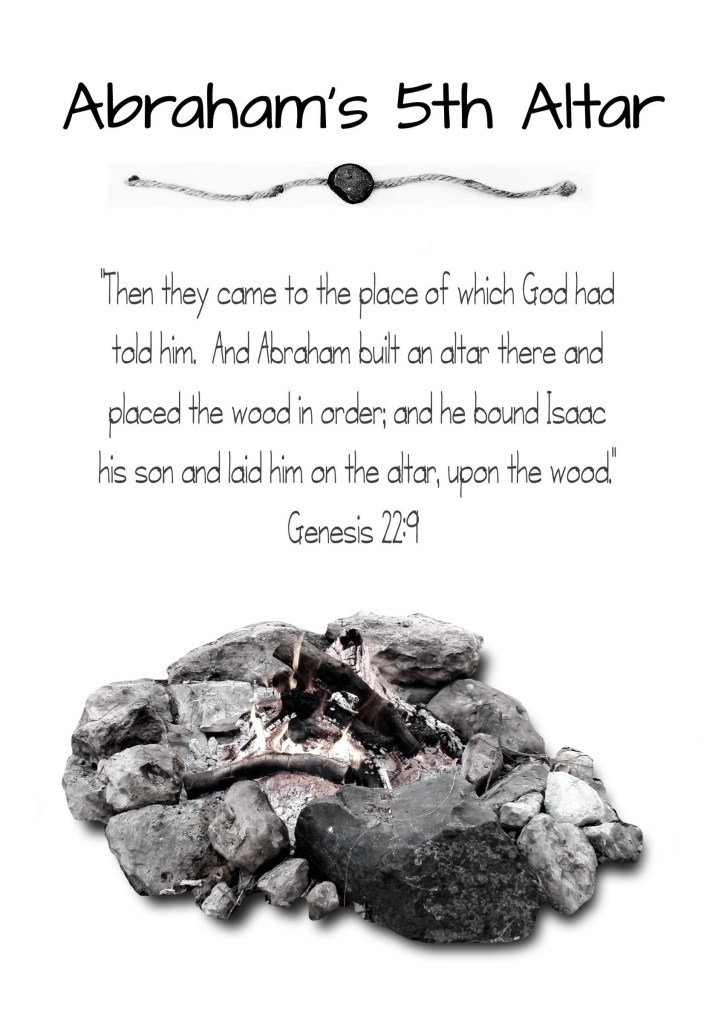
Read Genesis 22 thru 25
What did God do to Abraham in Genesis 22:1?
Was Isaac Abraham’s “only” son? The Hebrew word for “only son” is yachid (yah-cheed); Strong’s #3173. Using a Strong’s concordance/dictionary, what are some of the definitions of the word yachid in the Hebrew? Jesus is God’s “only son,” but angels are also called “sons of God” in Genesis and Job. What do you think is meant by the term “only son?”
Zechariah 12:10 says the house of David and the people of Jerusalem will mourn for the one they pierced “as one mourns for his ________ ______.” How does Hebrews 11:18 shed light on this?
The parallels between Isaac and Jesus are so profound, we know God wanted us to see in Isaac a type and foreshadow of the promised Seed that would one day crush the head of the serpent. This website lists a whole bunch of these parallels, but here are the ones I found that I thought were pretty neat…
The mountain
Look on a map to find where Mount Moriah is located. Draw it on your personal map. In the coming chapters of this Bible Study we will make visits back to this mountain, and I don’t want to spoil the fun, especially when we get to David’s altar to God, but this mountain is just a treasure trove. These are some websites I found with lots to share about it (The Rich History of Moriah,… Mount Moriah,…and What is the Significance of Mount Moriah in the Bible). “And Abraham called the place, “YHWH-Will-Provide, as it is said to this day (Genesis 22:13b), ‘In the Mount of the Lord it shall be provided'” Genesis 22:14.
The donkey ride
What type of animal did Abraham saddle up for the journey to the mountain top? Read Matthew 21:1-11; Mark 11:1-11; Luke 19:28-44; John12:12-19; what type of animal was Jesus placed upon? Why a donkey? Have a peek here.
The journey
Abraham’s journey with Isaac to the place of the altar was 3 days, at which point the mountain was still afar off (Genesis 22:3-5), so more than 3 days, possibly another day, for a total of 4.
Jesus’ journey to the cross followed the timeline of the Passover (Exodus 12:3-6). The Passover lambs are chosen on Nissan 10, which is when Jesus made His triumphal entry (Matthew 21:1-17; Mark 11:1-11; Luke 19:29-40; John 12:12-19). The lambs are inspected (as Jesus was, and He was found to be blameless – Matt.26:59-60; 27:19,24; Luke 23:4,14-15,22); And on Nissan 14 the spotless, defectless Passover lambs are slain, which is when Jesus breathed his last (Matthew 27:2, 50; Mark 15:42; Luke 23:54; John 19:31,42) – Preparation Day is Thursday, the day before Sabbath; Sabbath begins at dusk on Friday. In this instance Passover landed on Preparation day. Total of 4 days.
A promise made
In Genesis 22:5 Abraham said to his young men, “the lad and I will go yonder and worship, and we will come back to you.” Why did Abraham say “we” would come back when he was taking Isaac to sacrifice him (Hebrews 11:19)? Likewise Jesus said “If I go and prepare a place for you, I will come again and receive you to Myself, that where I am, you may be also” John 14:3.
The wood
The wood for the sacrifice was laid on Isaac (Genesis 22:6;) to carry. The wooden cross was laid on Jesus to carry – John 19:17. Isaac was bound and laid upon the wood (22:9). Jesus was laid upon the wooden cross and bound to it with nails (Mark 15:24; John 20:25). This happened as prophesied in Isaiah 53:5
The knife
Abraham raised a knife to slay his son (Genesis 22:10). One of the soldiers raised a speer to pierce Jesus and make sure He was dead (John 19:34). He was pierced for our transgressions – Isaiah 53:5; John 19:32-37; 1 John 5:6-8; Dt.19:15; John 8:17-18; 1 Tim. 5:19.
The altar
Isaac was laid upon an altar made of rocks with the wood put in order upon it (Genesis 22:7-9). Jesus was laid upon a wooden cross atop a barren hilltop that is said to have resembled a skull cap, which was likely a very large rock (John 19:17-18), perhaps the place where King David took the skull of Goliath (1 Sam. 17:54), therefore aptly named the-place-of-the-skull (Gol-goth-a). The names Gol-iath and Gath are even sort-of hidden in the name Golgotha. Click on those links to discover the meanings of those names. Golgotha, like Gethsemene, was where Christ’s blood was pressed out like a drink offering, which, in addition to a grain offering, was to accompany all offerings of blood. Christ’s crucifixion served as the blood sacrifice and the firstfruits grain offering, and the drink offering all in one. Goliath’s name means exposer or one that uncovers, and isn’t it interesting that in researching all of this, such a wonderful mystery would be uncovered?
The ram’s horns, caught in the thicket
Just before Abraham plunged the knife into his son, he was told to STOP! “Then Abraham lifted his eyes and looked, and there behind him was a ram caught in a thicket by its horns” (Genesis 22:13a).
“And they clothed Jesus with purple and they twisted a crown of thorns and put it on His head (Mark 15:17); Jesus’ head wrapped in thorns – (John 19:2)
The anxiousness
Isaac was trusting and willing, but he spoke to his father, look the fire and the wood, but where is the lamb (Genesis 22:7)? Jesus, being obedient to death — even death on a cross (Philippeans 2:8), began to be troubled, sorrowful, and deeply distressed He fell on the ground to His face and prayed 3 seperate times for this cup to be removed. His sweat was as great drops of blood. (Luke 22:39-46)
The faith
Abraham said, “My son, God will provide for Himself the lamb…” Genesis 22:8. By faith Abraham, when he was tested, offered up Isaac…concluding that God was able to raise him up, even from the dead (Hebrews 11:17-19). Abraham believed God and it was credited to him as righteousness (Genesis 15:6; Galatians 3:6; Romans 4:3,18,22; James 2:23).
Jesus, speaking of His body said, “Destroy this temple,and in three days I will raise it up.” (John 2:19.) Jesus said He had the power to lay down His life and the power to take it up again (John 10:18).
The Angel
Who do you think was the Angel who called to Abraham from heaven and stopped him from slaying Isaac? Does your Bible cross reference other places in scripture where this Angel is also mentioned? Could the Angel be Jesus?
Hebrews 9:15
For this reason He is the mediator of a new covenant, so that, since a death has taken place for the redemption of the transgressions that were committed under the first covenant, those who have been called may receive the promise of the eternal inheritance.
Hebrews 12:24
and to Jesus, the mediator of a new covenant, and to the sprinkled blood, which speaks better than the blood of Abel.
1 Timothy 2:5
For there is one God, and one mediator also between God and men, the man Christ Jesus,
Hebrews 8:6
But now He has obtained a more excellent ministry, by as much as He is also the mediator of a better covenant, which has been enacted on better promises.
Ephesians 2:13-18
But now in Christ Jesus you who formerly were far off have been brought near by the blood of Christ. For He Himself is our peace, who made both groups into one and broke down the barrier of the dividing wall, by abolishing in His flesh the enmity, which is the Law of commandments contained in ordinances, so that in Himself He might make the two into one new man, thus establishing peace
Galatians 3:19
Why the Law then? It was added because of transgressions, having been ordained through angels by the agency of a mediator, until the seed would come to whom the promise had been made.
(Source: https://bible.knowing-jesus.com/topics/Christ,-The-Mediator)
Job, in his time of suffering on earth, lamented that there was no mediator for him in God’s court of law (9:32-33). But a mediator was promised (Galatians 3:19) who would take away the sin of the world and make sin-sick men holy, as God is holy. Christ is the only true mediator between God and man, because He is the ONLY one to ever live who was both fully God and fully a man, knowing the divine nature of God and His pure holiness, but being able to sypmpathize with our weaknesses (Hebrews 4:15).
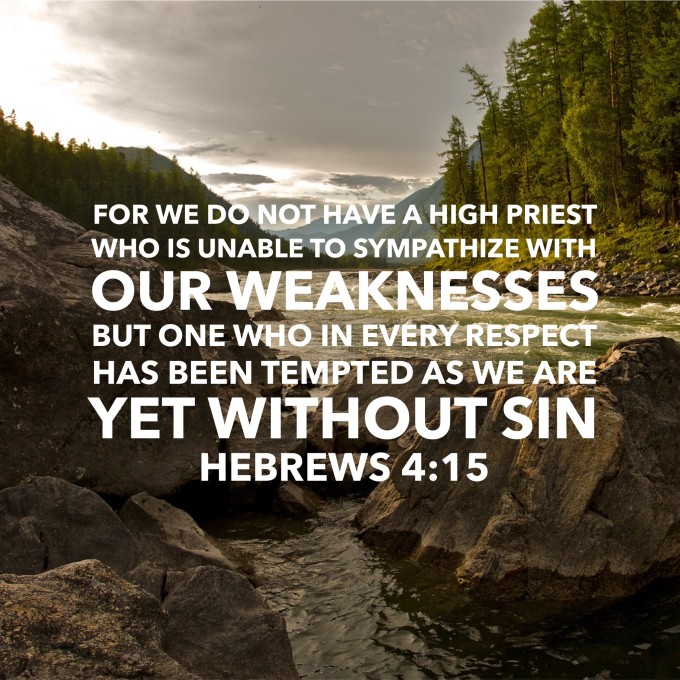
When the Holy Spirit puts it into our hearts to chase down a rabbit hole in the scriptures, you can be assured Jesus is waiting there. Jesus says that we will seek Him and find Him when we search for Him with all of our hearts. The veil to the Holy of Holies is ripped in two from heaven to earth so that we may enter into His presence and have fellowship with Him. Isn’t the Bible fascinating? I love the mysteries and the deep and hidden things of God, the crumbs that fall from the Master’s table, that are waiting to be found, don’t you?
If the Bible has always been just a dusty old book with crazy old stories for you, I hope that something I’ve found here will change your mind. Please know that it is a totally different book when the Holy Spirit comes to live inside of us. If we are born again, believers in Jesus, filled with the Holy Spirit, the Bible will come to life for us as we read it in a way we could have never imagined. That is one of the amazing things about it. Through it we have relationship with our Creator and Savior and He has fellowship with us.
Has your faith ever been tested? It is a refining process (Job 23:10).
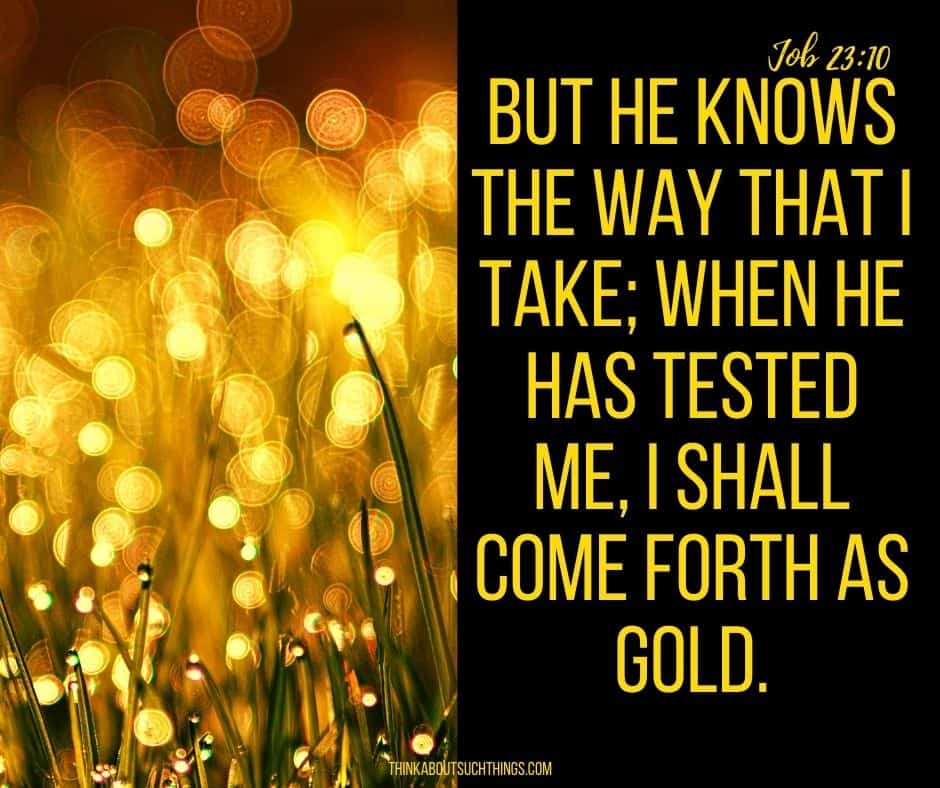
When Jesus comes for His bride will He find you faithful? Do you know Him? Do you want to know Him? There is no magical prayer, or complicated formula. All you have to do is ask, believing, and you will recieve Him.

Let’s continue reading…
Where did Abraham return to after the Mount Moriah experience (Gen. 22:19)? Where did Sarah die (23:2)? In that verse it says Abraham came to mourn for her. Did this mean he was not with her when she died? This was the place of Abraham’s 3rd altar (Gen.13:18). Who are the sons of Heth (Gen. 10:15)? How much silver merchant’s money did Abraham pay to purchase a burial place for Sarah (Gen. 23:16-18)? Were there witnesses to the transaction? Write out Genesis 23:19-20. Check out this article about the burial place that Abraham purchased. Who else is buried in this grave – Genesis 25:8-10; 35:27-29; 47:29-31; 50:12-13?
Perhaps you have lost a spouse? Did you have the means to pay for the funeral and burial at a cemetery? Would you expect that a hundred, two hundred, three hundred years later that burial plot would still be there? This one of Abraham’s is almost 4000 years?
Where did Abraham send the oldest servant of his house to fetch a bride for Isaac? What did he make him do in Genesis 24:2-3? Can you draw Abraham’s family tree from the info you find in Genesis 11:26-29; 22:20-24; and 24:15? Use a blank sheet of paper to sketch out Abraham’s lineage. Add it to the pages of your book and remember to keep adding to it as we go along. Make notes of the scripture locations for your information.
How did the servant know he had chosen the right bride? What did the servant do in 24:21? Whose daughter was Rebekah? Isaac and Bethuel were cousins. (How important is it to you that you or your children marry within the family-of-God?) What did the servant give to her in verses 22 and 47? What did the servant do in 24:48 & 52? What did the servant give as a bride gift and as a dowry in verse 53? What was the blessing her family spoke to her when they sent her off (vs. 60)? How is this blessing similar to what God spoke over Adam and Eve in Gen. 1:28, Sarah in Gen. 17:16, and God’s blessing on Abraham through Isaac in Gen. 22:17? How is this similar to Jesus’ blessing on Peter in Matthew 16:18? Isaiah 45:18; Matthew 28:19. Has anyone ever spoken a blessing over you? Have you ever spoken a blessing over your children, grandchildren, or family members? Where did Sarah die (23:2)? Where was she buried (23:19)? Mark these places on your map.
Where was Isaac living at the time (Gen.24:62)? What did Isaac do in the evening (Gen. 24:63)? Isaac and Rebekah became husband and wife in whose tent (Gen. 24:67)? Who did Abraham then take as a wife in Gen. 25:1 (but was she a “wife?” See 1 Chron.1:32)? How many children did he have with her? Where did he send those sons to live (Gen.25:6)? And where did Ishmael live (21:21; 25:18)? Who inherited all of Abraham’s wealth (25:5)? Mark all of these places on the map.
What is the exact wording of 25:8?
What do you think it means that he was “gathered to his people?” Is this a physical thing – being buried together in a family grave, or a spiritual thing? Who does the act of gathering (2 Kings 22:20; 2 Chr.34:28)? The same was said of Ishmael in 25:17; and Isaac in 35:29; and Jacob in 49:29 & 33; Aaron in Numbers 20:24; Moses in Deut. 32:50; and Joshua’s generation in Judges 2:10. Were all these people buried with their family in a mass family grave?
What is Abraham’s bosom (Luke 16:19-31)? Is Abraham’s bosom the same place as “Paradise” (Luke 23:43; John 20:17; Acts 1:9; 2 Cor. 12:2,4; Luke 14:14; 1 Thes. 4:16)? Is it the good side of Hades (or Sheol) as believed in ancient Greece and Rome? I challenge you to do some research on that.
Where did the Garden of Eden, the Paradise on earth, go? Did it just die, or was it taken up in the spiritual realm? Are there other places in the Bible where people are said to be gathered?
“Do not foresake the GATHERING of yourselves together.” Hebrews 10:25. What do you believe this verse to mean? Have a peek HERE for some interesting perspective.
What are some other gathering places? The table (Hebrews 13:2), a wedding (John 2)? Not sure where I am going with that, but I like the thoughts it provokes.
Where was Abraham laid to rest (Gen. 25:9-10)? Who buried him (25:9)? Where did Isaac choose to live (25:11)? We know that Ishmael lived in the Sinai Peninsula (which was considered Egypt from the earliest of Bible times). Mark all of these places on the map. It seems that Isaac and Ishmael had an amicable relationship, doesn’t it? They remained close neighbors all their lives, buried their father together, and never had any known conflicts. Isaac’s son Esau would later marry one of Ishmael’s daughters (Gen.28:9), in what appears to be a show of maturity, and an attempt to please his father and mother. 1 Chronicles 1 and 2 go into detail of the lineage Abraham’s children. 1:27-31 is his son Ishmael. 1:34-37 is his son Isaac. 1:38-54 is his son Esau (who does Gen. 36:1,8-9 say Edom is?). And 2:1-17 is the family of Jacob/Israel. Compare the genealogies of Genesis 36 and 1 Chronicles 1&2 with all that we know so far.
Personal application
How does all of this apply to us? Has the Holy Spirit spoken to your heart about anything as we’ve studied His word? Can you think of an experience you’ve had with God similar to any of the characters in this story? Abraham certainly had quite a full life, with much scripture devoted to him. He was a go-getter right to the end. He lived in relative peace in the land God brought him to. There was never an issue with his servants, and even his children did not quarrel with one another. He fared well and was prosperous. He was blessed and was a blessing.
Has God ever asked you to give up something precious to you, as Isaac was to Abraham? Was it hard for you to give it up or did you trust that God is ultimately good and would work all things together for good? Ever had a child (or other family member) that you loved dearly almost be taken from you by tragedy? Have you ever thought about where our spirits go when our bodies die (1 Cor. 5:3; 2 Cor. 5:6-7)? Have you ever wanted to step in and help your kids choose a mate wisely? Perhaps you’ve prayed God would bring them a good spouse, of good moral character, to love, honor, and cherish, and who would love, honor, and cherish them back? If you have small children or grandchildren, you could begin praying NOW for their future spouses. God, knowing the future, can help to lead them to the spouse that will be a good, godly fit, a good provider, a good helpmate, a good friend, a good mother/father, evenly yoked for the work of God’s kingdom, etc. Start the conversations young, how important it is to choose a spouse wisely. Do you have regrets over the spouse you chose? Do you feel blessed that God gave you a good spouse? Maybe share with your kids some of the concerns you have that may help them choose a spouse wisely in this day and age (std’s, unplanned pregnancy, ungodliness, temper issues, having a kind heart, how they treat others, etc.), and some mistakes you made and the consequences you suffered that you would hope they would avoid. There is a wonderful movie (for teenagers) which can help with this conversation. It’s called *Because of Gracia. It’s a beautiful movie every parent of teenagers should see.
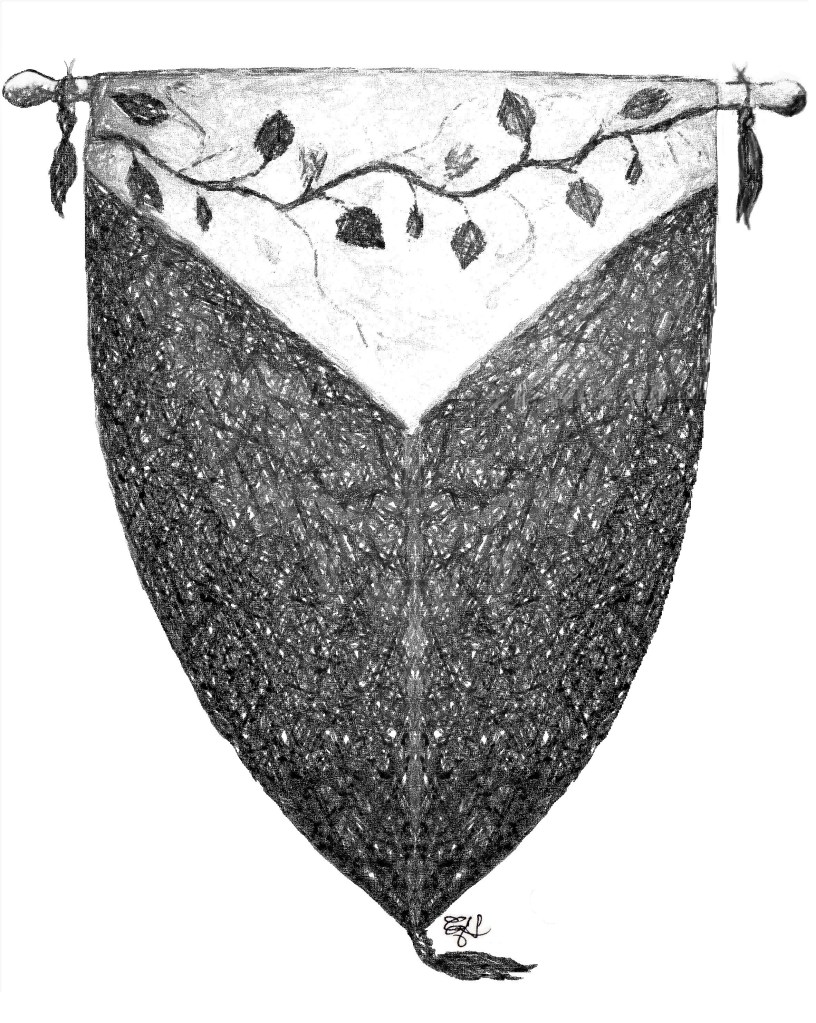
Project (an altar that I can build):
Make a shield bookmark for your Bible. Color the front of it, and on the back of it write several scriptures that speak of God being a shield for us, starting with Genesis 15:1; Deut.33:29; Psalm 115:9-11; Ephesians 6:16; 1 John 5:4. When done we can laminate it. How nice to make up several bookmarks and give them to friends and family.
OR, if we are very ambitious we can make a banner (flag) in the shape of a shield and embroider the scriptures along its edges, and then hang it on our wall. We could also worship God with it at church, if we belong to a church that uses flags and banners in worship. OR, we could fly on a flag pole at our house; OR hang it on a pole and march with it in a city parade.
I sketched this design for such a banner when I was a member of my church’s worship team. I had always intended to sew one together, but other projects vied for my time and I never got around to it!
| “Blessed are those who keep His testimonies, who seek Him with the whole heart!” Psalm 119:2 |
[*] Five Stones Films | BecauseOfGracia.com | ©2018 GRACIA FILMS, LTD




